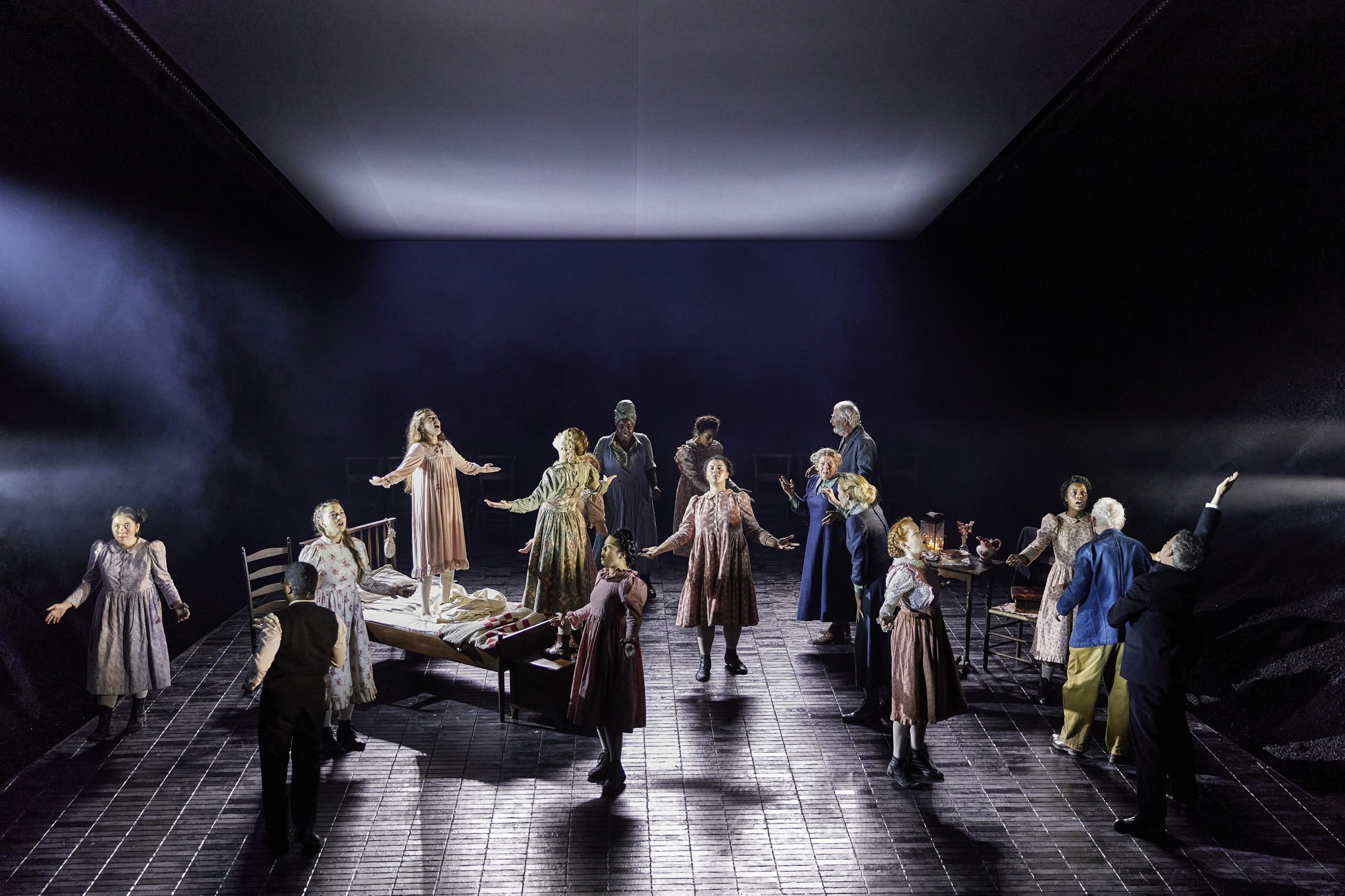
The Crucible – ostensibly about the Salem witch trials in newly-founded Massachusetts,1692 – in which 14 women, five men and two dogs died for the crime of ‘witchcraft’ – speaks to who ‘we’ are now, who ‘we’ always have been and, perhaps to who ‘we’ might always be.
There are several anthropologica
l studies suggesting the near-impossibility that a human society totalling more than 80 members can prevail for any length of time; not unless that settlement, tribe or village were to share a strong a set of core-beliefs, and ‘gossip’ – or some similar ‘social glue’ – were used to mitigate against any social deviancy.
The belief-system – religion, superstition or social code doesn’t have to be empirically ‘true’, logical or even provable; it just has to be shared by all those under the society’s thrall.
With this in mind, the nature of Arthur Miller’s classic play – at least, in respect to its American setting – cannot easily be exaggerated. Indeed, the commonalities shared between the play’s original setting (Boston, Massachusetts in1692) and the links to both its period of authorship (1953) and the present-day, are palpable.
Modern social media, alongside the twin airwaves of T.V. and radio, now combines with the village square and the church lectern and pew as the means by which we rationalise and disseminate our communal fears, parochial passions and insular loathings.
Certainly, the desire to artificially ‘build up our own ‘parts’ with lies, delusions, exaggerations and/ or conspiracy theories – even if it negatively impacts upon others – has remained, if not gathered speed and effectiveness, over the decades and centuries.
Women and young girls being perceived as ‘baby factories’, indentured slaves, or as being seemingly inferior in temperament or morality still appears to be a prevalent dynamic.
Similarly, in times of economic and moral upheaval, only those citizens exhibiting the most conventional of attributes – or thought processes – are prized within the community.
Indeed, as ‘the other’ is increasingly vilified, only those who most-tightly cling to the ‘zealot’s wheel’ remain safe… at least, until the wheel runs them over, also.
Composer and arranger Caroline Shaw’s eerie score is ably brought to life by Osnat Schmool; bringing to mind, as it does, the creeping dread of a well-executed horror-movie. Indeed, Tingying Dong and Christopher Shutt’s brilliant sound design work seamlessly alongside Tim Lutkin’s incisive lighting design to sustain and build – never diminish – the power of the moment.
“The acting is uniformly brilliant – often breathtaking”.
The dialogue is extraordinary – whether spun as heartfelt monologue, or as a series of interweaving and overlapping threads; the emotional tapestries leaving us breathless.
Just as the web starts to grow too tight, a wisp of light humour or sudden pathos fills the air, to remind us of our ‘better angels’ or of our darker inclinations.
The acting is uniformly brilliant – often breathtaking.
I must mention Brian Gleeson as John Proctor, Matthew Marsh as Deputy Governor Danforth, Karl Johnson as Giles Corey, Caitlyn FitzGerald as Elizabeth Proctor and Milly Alcock as Abigail Williams; all of whom imbue their characters with a deep humanity, alongside a deep technique.
Es Devlin’s set design is both cinematic and claustrophobic.
Catherine Fay’s costume designs is equally faultless.
Director Lyndsey Turner – in gathering together such a rich array of talent – deserves an ovation.
But it is Arthur Miller who deserves the greatest applause. By reminding us that our human frailties are nought but history repeating, he has created a play for the ages.
Oh, what exquisite pain.


























